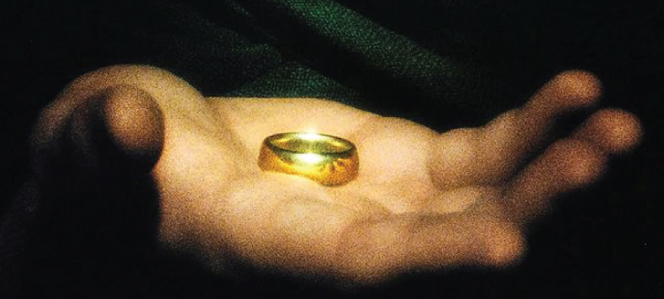I recently read a fantastic addition to the continued efforts to unfold the evangelistic vision within the literature of J.R.R. Tolkien entitled Tolkien’s Sacramental Vision: Discerning the Holy in Middle Earth. The author, Craig Bernthal, exquisitely unfurls the influence of Tolkien’s Catholicism upon his writing and his development of Middle Earth. How is it that Baptism is unveiled in the lives of Frodo and Sam? When does Middle Earth experience its fall from grace and thus the necessity of a saving victim? Bernthal tackles these questions and more.
I especially enjoyed Bernthal’s grasp of all of Tolkien’s writings, not just The Hobbit and The Lord of the Rings. Indeed, one cannot begin to truly understand the immensity of Tolkien’s myth without diving into the deep wells of his many other works and translations of old myths.
One quality of Tolkien’s work which beautifully expresses the author himself is the incredible amount of what he described as a mythopoetic life. Mythopoetics comes from a Greek term that means ‘myth-making.’ It was both a literary and cultural term. Tolkien didn’t only write mythopoetic literature. He lived a mythopoetic life. And he wasn’t alone in this. We see it in Chesterton’s essay, “What I Found in my Pocket,” in which a few tram tickets reveal St. George and “the greatest hope of England.” It reveals a soul who wants more than what the world offers, a person desiring adventure and wonder in the everyday experience. Life is not about the superficiality of what we can see and hear. The humdrum nature of scientism and de-mythologizing is less about finding the truth of things and more about removing their intrinsic marvel and worth.
The greatest saints of the Church mirrored this same mentality in living their own lives. A dove is not just a bundle of bones and feathers, it represented the Holy Spirit and his majestic relationship with mankind. A weed is not just a pest, it is a three-leaved sign of the living God, who through this simple plant, reveals the most wondrous and innate part of His nature. We are no accident of creation. Everything created has intentionality and purpose within the sacred walls of matter. And this is why the seven sacraments of the Catholic Church are the best and most purposeful expression of not only living out a mythopoetic life but sharing in the actual divine life of Christ himself. Jesus knew of man’s natural inclination to find the wondrous and beautiful aspects of his Father’s creation and thus, by his own authority, gave the Church these seven gifts. It is a full understanding of this philosophy and theology that, as Bernthal very well expresses, Tolkien was influenced and innately expressed within his created world, Middle Earth.
In Tolkien’s poem Mythopoeia he warns his reader of the danger of taking everything in life for face value:
“You look at trees and label them just so,
(for trees are ‘trees’, and growing is ‘to grow’);
you walk the earth and tread with solemn pace
one of the many minor globes of Space:
a star’s a star, some matter in a ball
compelled to courses mathematical
amid the regimented, cold, inane,
where destined atoms are each moment slain.”
By showing the dark dullness of materialism Tolkien prophetically observed that happiness cannot be found through consumption, following the example of the secular humanist, but rather in experiencing and expressing the true adventure of becoming Christ’s disciples. He doesn’t mince words when it comes to the ideals of progressivism:
“I will not walk with your progressive apes,
erect and sapient. Before them gapes
the dark abyss to which their progress tends
….
I bow not yet before the Iron Crown,
nor cast my own small golden sceptre down.”
Literature can be a powerful expression of culture and belief and, as Bernthal expresses: “A secularized literature, by excluding God, was a maimed literature, it could only present a maimed and distorted view of the world, for it had sliced away the most real thing in it.”
We ought to count ourselves blessed to live in a time and place that a Church has been appointed with the authority and grace to reveal the Godhead by way of his communion with our bodies, through the Eucharist, expressing the innate mercy of God through the sacrament of Confession, and breathing new life in the waters of Baptism. In his own way Tolkien expressed his love, acceptance, and willingness to share these great mysteries of faith. Middle Earth is pregnant with a sacramental view of life and death. A tree isn’t just a tree. A ring isn’t just a ring. The world is surrounded by the inexpressible awe of a Creator whose love is eternal . Mankind, elves, hobbits, dwarves, eagles and any other creature can experience this love so long as they are able and willing to open their souls to the beauty of his creation.
Perhaps what we ought to learn from Tolkien, Chesterton, C.S. Lewis, Flannery O’Connor, Walker Percy, and many other sacramental, twentieth-century authors is that living an adventuresome life is less about doing and more about relenting, so that the effort of Christ can inform and mold our vision into something mythopoetic.
